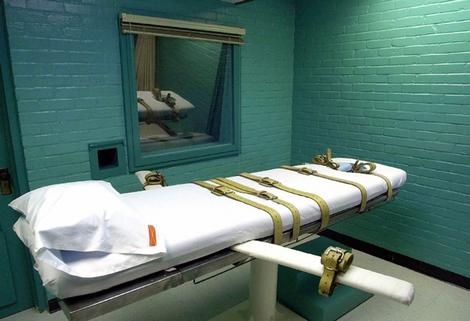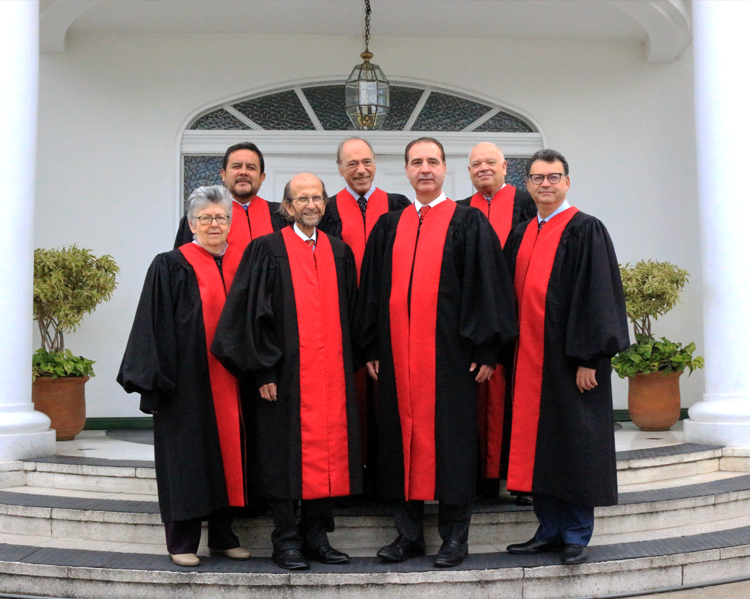By Prof. Francisco Rivera and Santa Clara Law students Katharine McCallum and Cory Culver
In March of 2019, the International Human Rights Clinic submitted an amicus curiae brief (in Spanish) before the Inter-American Court of Human Rights (“Court”), addressing the human rights violations associated with the “death row phenomenon.”

Death Chamber
Prof. Rivera and clinic students Katharine McCallum and Cory Culver submitted this brief to support the arguments of the petitioner and of the Center for Justice and International Law (CEJIL) in the case Ruiz Fuentes v Guatemala. In the Ruiz Fuentes case, Mr. Ruiz Fuentes spent 6 ½ years in death row under inhumane conditions of detention.
According to the Inter-American Commission on Human Rights, the death row phenomenon refers to the anguish and the additional dehumanizing effects suffered by persons sentenced to death while awaiting their execution for a prolonged period of time. The psychological and physical impact of the death row phenomenon is aggravated when the person is detained under inhuman conditions, but it is the passage of a prolonged period of time itself that is enough to constitute a human rights violation. The Inter-American Court has not adopted this definition of the phenomenon, so the clinic’s brief asks the Court to adopt the Commission’s definition and reject a more restrictive analysis of what is meant by the “death row phenomenon.”

Judges of the Inter-American Court of Human Rights
The brief argued that, according to international human rights law, the death row phenomenon implies a violation of the right to physical, mental, and moral integrity. It also implies a violation of the right of every person deprived of his liberty not to be subjected to cruel, inhuman or degrading treatment or punishment, and to be treated with due respect for the inherent dignity of the human person.
To define the minimum length of time on death row required to give rise to the death row phenomenon, the brief provides a comparative study of foreign court decisions that found that maintaining a person on the death row for a period of between 3 and 8 years (or more) can be considered a cruel, inhuman or degrading treatment or punishment. The brief argues that inhumane conditions of detention may aggravate this violation, but that the mere prolonged waiting for an execution (defined as at least more than 3 years) may generate enough suffering per se to be considered a violation of the right to personal integrity.
Consequently, the brief argues that the Court must declare that the alleged victim suffered a violation of his rights to physical, mental and moral integrity, to not be subjected to cruel, inhuman or degrading treatment or punishment, and to be treated with due respect for the inherent dignity of human beings, recognized in Articles 5.1 and 5.2 of the American Convention on Human Rights, in relation to Article 1.1 of the same instrument, as well as Article 6 of the Inter-American Convention to Prevent and Punish Torture.
A video of the hearing before the Inter-American Court can be found here. More information about the case (in Spanish) can be found here. The Inter-American Commission’s decision on the merits can be found here. The Court’s decision is expected later this year.

Katharine McCallum and Cory Culver